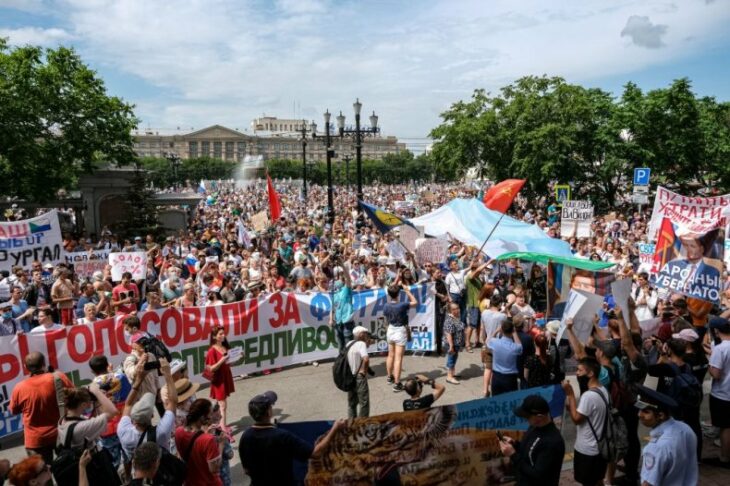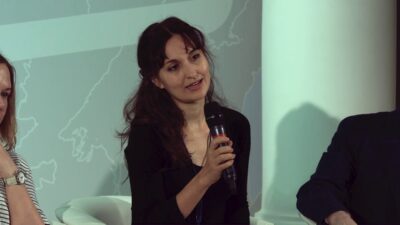As tens of thousands of protesting Russians have taken to the streets in their country’s far east, a new poll suggests that a significant plurality…

As tens of thousands of protesting Russians have taken to the streets in their country’s far east, a new poll suggests that a significant plurality supports the demonstrations while only a minority opposes them.
The new polling, which was published Tuesday by the independent Levada Center, showed that 45 percent of respondents approve of the protests, which are critical of the administration of President Vladimir Putin, The Moscow Times reported. Only 17 percent of respondents said they disapproved of the movement, while 26 percent said they had a neutral view of the demonstrations.
Asked if they would personally participate in similar anti-Kremlin protests if they were held in their region, 29 percent said they would. The survey was conducted from July 24 to 25 and queried more than 1,600 Russians.
Newsweek reached out to the Kremlin for comment but did not hear back in time for publication.
The protests began in the eastern city of Khabarovsk, some 4,000 miles from Moscow, after the arrest of Sergei Furgal, the popular regional governor, earlier this month. Frugal was whisked away to Moscow for investigation and is reportedly being held on suspicion of involvement in multiple murders in the early 2000s. But many see the charges as politically motivated, as Furgal had been willing to challenge the Kremlin.”The very fact that they could not find anything more fresh to accuse him of is a clear signal that this is an act of political repression,” Nikolai Petrov, a political analyst, told The New York Times. “They are telling local elites that if they can arrest a sitting governor for crimes going back 15 or 20 years then they can arrest anyone.”
For three straight weekends, tens of thousands of anti-Kremlin demonstrators have taken to the streets in Khabarovsk, with some calling for revolution.
Kremlin spokesperson Dmitry Peskov dismissed the protests last Friday. “These continued events, of course, serve as fertile ground for various quasi- or pseudo-oppositionists and rabble-rousers that feed off it, who, of course, have flown there,” Peskov said, according to government news agency Tass.
Previous protests critical of Putin and his administration have not led to significant political reforms. In 2018, protests arose as Russia moved to increase the national retirement age from 55 to 60 for women and from 60 to 65 for men. As thousands protested that move, the Levada Center found that a majority (53 percent) of Russians would join rallies against the measure. But the reform was pushed through, despite the opposition.
The new demonstrations come about a month after Putin won a referendum that rewrote Russia’s constitution, paving the way for him to remain in office until 2036. Critics have long raised concerns about Putin’s strongman leadership style, warning that Russia has descended into authoritarianism.




